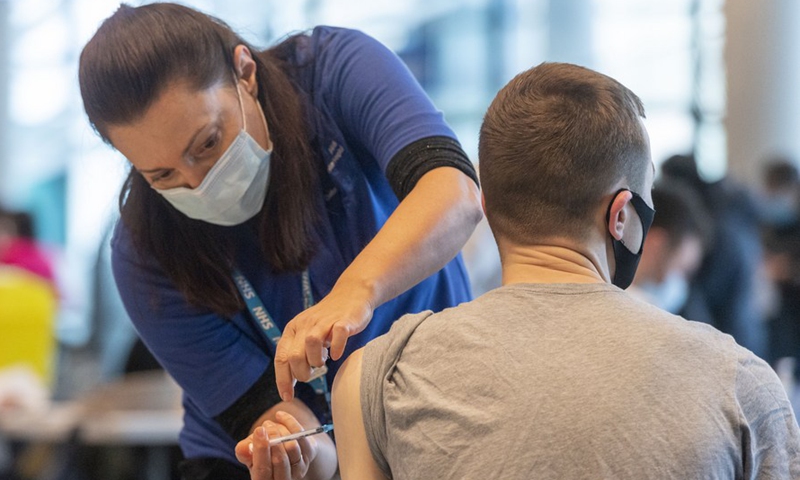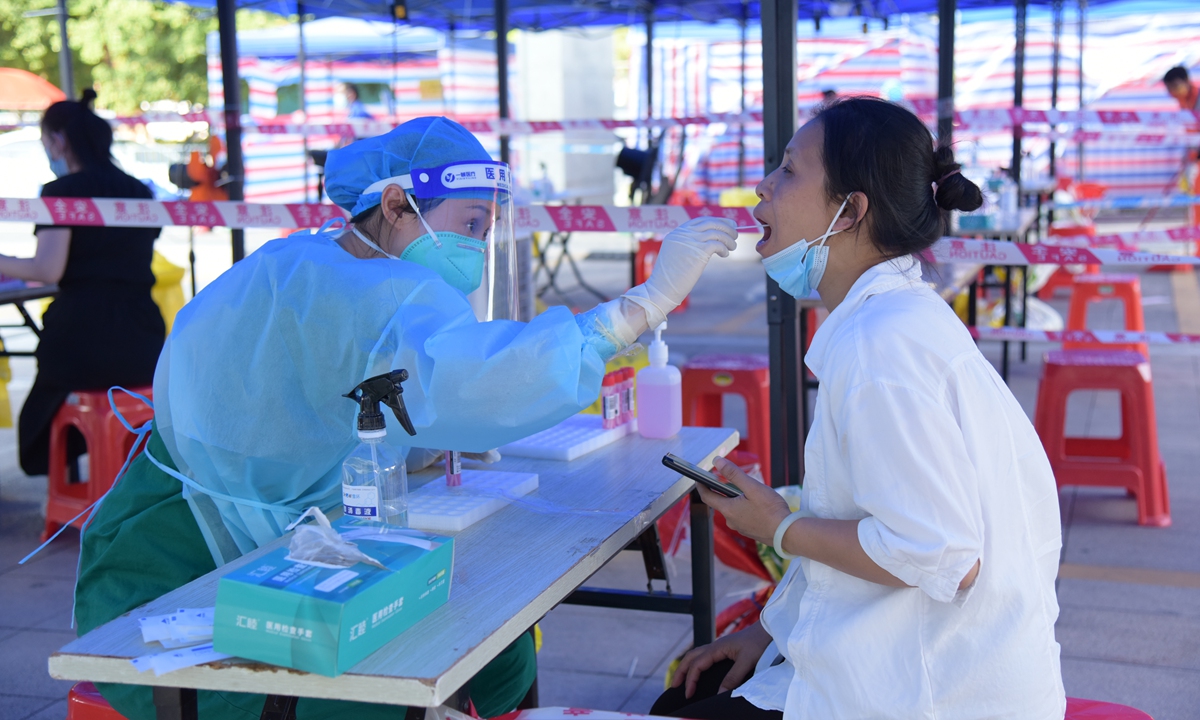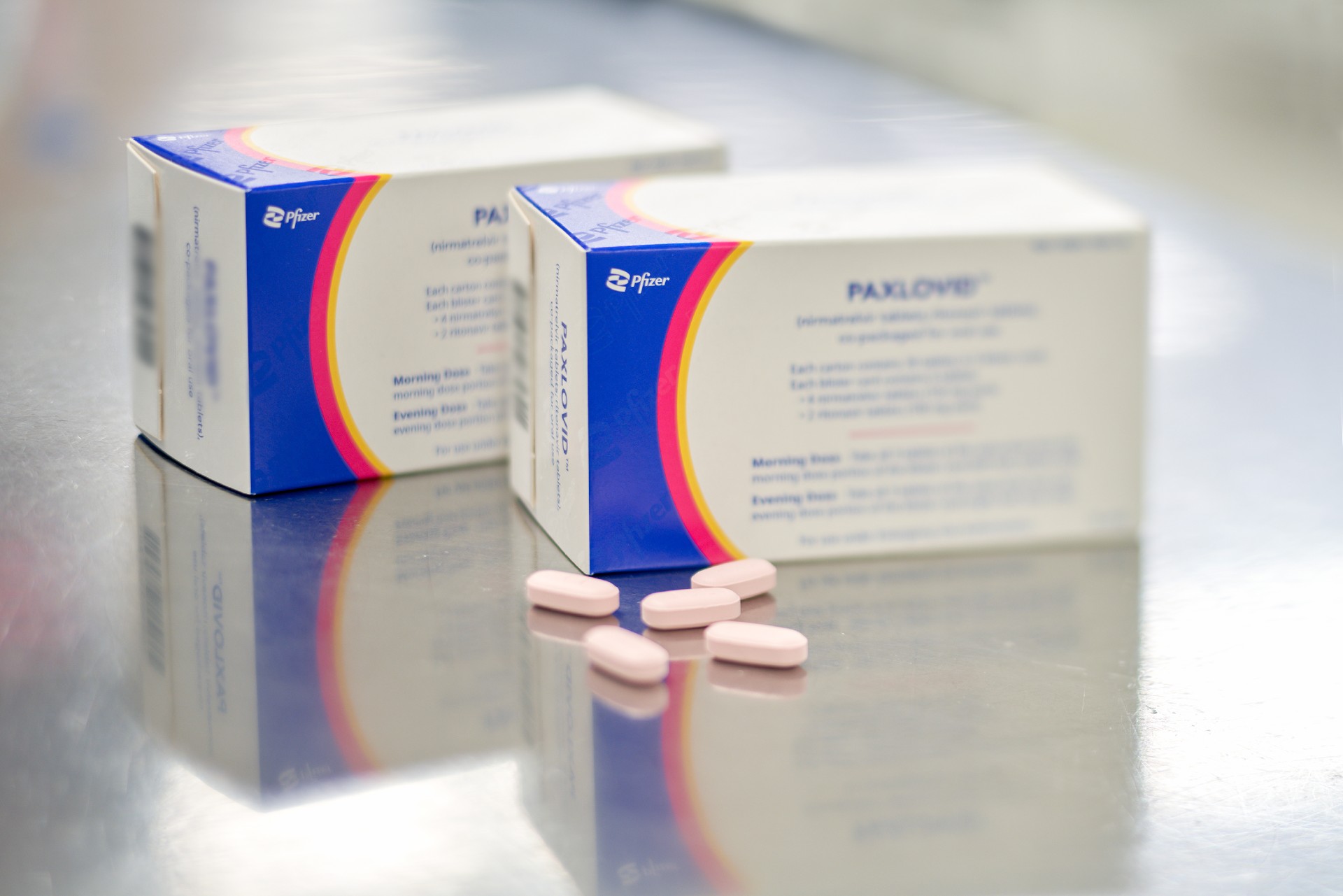Khairy also encouraged frontline staff, including Election Commission employees who will be on duty during GE15, to get a second booster vaccine dose.
Related
Malaysians told to mask up as new Covid-19 wave hits the nation
ahead of
GE2022
Republic of Korea = SOUTH KOREA
CHINA
World faces risk of combined epidemic of influenza and COVID-19 in the coming winter: top Chinese epidemiologists.
Zhong Nanshan Photo: VCG
The world still faces the risk of a combined pandemic of COVID-19 and influenza, especially this winter, Zhong Nanshan, top Chinese respiratory diseases expert, said on Tuesday in The World Flu Day 2022 Symposium that more efforts are needed to tackle the scientific problems of influenza prevention and control during the COVID-19 pandemic. "Both COVID-19 and influenza viruses are respiratory viruses, and respiratory virus infections tend to have a short incubation period, rapid and wide spread, strong transmission, high incidence, and are difficult to control," Zhong pointed out. Once the epidemic caused by respiratory viruses breaks out, it often leads to serious public health crisis, and then becomes the focus of the prevention and control of infectious diseases in the world. At the conference, Dong Chen, an academician of Chinese Academy of Sciences, also said that the world still faces a high risk of overlapping epidemics of respiratory infectious diseases such as influenza and COVID-19, and the prevention of that still has a long way to go. "Since June, there has been a new outbreak of avian influenza in Europe and an unprecedented outbreak of H5N1 infection in birds in the US, with a very high risk of spillover into humans. So the combination of influenza and COVID-19 is a very big challenge for us this winter and next spring," Gao Fu, former head of the Chinese Center for Disease Control and Prevention and an academician of Chinese Academy of Sciences, also warned that the current level of COVID-19 vaccination is gradually increasing, but the flu vaccination rate is generally low. Due to COVID-19 prevention and control measures, data over the past two years have shown that influenza prevalence level has remained low. But things are gradually changing. As COVID-19 flares up in several places across China with total daily cases nearing 3,000, many localities, including Central China's Henan and South China's Guangdong, are stepping up efforts to contain the virus and resume work and life as soon as possible. On Tuesday, 465 new confirmed cases were reported nationwide. As Tuesday, 31 Chinese provinces, regions and municipalities have reported 4,854 confirmed cases. Zhang Wenqing, Director of WHO Global Influenza Programme, said in the conference that at the beginning of the COVID-19 pandemic, the influenza situation was very weak around the world, but the change occurred in the second half of 2021. The data showed an increase in influenza virus activity in many countries, both in the northern and southern hemispheres. "In some countries in the southern hemisphere, influenza virus is more active than it was before the COVID-19 outbreak," Zhang said. This points to the important question of whether the northern hemisphere will see the same seasonal flu spike as the southern hemisphere. Talking about the reasons for this change, Gao said one possible reason is that in the past three years, public health measures have been implemented globally, which has caused the overall population to have a weak immunity to influenza viruses. Some countries have relaxed their public health policies recently, making it more likely that new strains will emerge, Gao warned. At the same time, the low rate of influenza vaccination also causes the situation that the influenza virus is easy to spread. As for how to effectively deal with this crisis, scholars from different regions and countries, such as Russia and the UK, agreed that the experience of COVID-19 prevention and control is worth learning, for example, the development of rapid and accessible diagnostic methods may play a crucial role in the prevention and control of influenza epidemic. Zhong believes that basic research and clinical research have important scientific and practical significance in the diagnosis, treatment, and control of respiratory viruses. The COVID-19 epidemic has promoted basic research on pathogenesis and accelerated the development of rapid clinical diagnostic methods, and provided an important basis for the clinical practice of epidemic prevention and control and the judgment of disease prognosis. In recent years, China has made a series of landmark achievements in respiratory virus research, Dong added. Basic research has made progress in respiratory viruses, etiology, structural biology, immunology, and cross-species and so on, and formed a good technical reserve, which can provide guidance for the prevention and control strategy of influenza, Dong said.As winter approaches, the World Health Organization (WHO) on Monday stressed the importance of staying vigilant as cases


%20Dashboard%20With%20Vaccination%20Data.png)

%20Dashboard%20With%20Vaccination%20Data.png)

%20Dashboard%20With%20Vaccination%20Data.png)

%20Dashboard%20With%20Vaccination%20Data.png)

%20Dashboard%20With%20Vaccination%20Data.png)


















